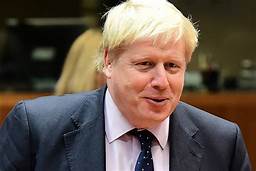InternationalNews
Brexit: Trade talks with the EU are ‘over’, says No 10

Talks between the UK and EU over a post-Brexit trade agreement are “over”, Downing Street has said.
No 10 said there was “no point” in discussions continuing next week unless the EU was prepared to discuss the detailed legal text of a partnership.
Earlier, Boris Johnson said the UK had to “get ready” to trade with the EU next year without an agreement.
The EU has said it is willing to “intensify” discussions but it will not do a deal “at any price”.
The UK set a deadline of Thursday to decide whether it was worth continuing talks amid disagreements in key areas.
The EU’s chief negotiator Michel Barnier due in London next week for further discussions but Downing Street suggested his trip would be pointless unless the EU shifted its position.
“There is only any point in Michel Barnier coming to London next week if he’s prepared to address all the issues on the basis of a legal text in an accelerated way, without the UK required to make all the moves or to discuss the practicalities of travel and haulage,” the prime minister’s official spokesman said.
“If not there is no point in coming.”
He added: “Trade talks are over. The EU have effectively ended them by saying they do not want to change their negotiating position.”
Speaking in Downing Street earlier, Mr Johnson suggested the EU was unwilling to seriously consider the UK’s preferred option of a comprehensive free trade agreement based on the bloc’s existing arrangement with Canada.
The UK, he added, must look at the “alternative” – which he suggested was Australia’s much-more limited set of agreements with the EU.
“The talks are over.”
As statements go, those four words from the prime minister’s spokesman this afternoon were something of a bombshell.
But Michel Barnier, who’s due to come to London next week to continue talks, might not be unpacking his briefcase just yet.
There’s no doubt that Downing Street is sending the clearest signal possible that it expects the EU to make the next move in these negotiations.
And the rhetoric accompanying the talks has reached a new level.
But both sides still want a deal, the process has not broken down and there is still time to reach an agreement.
It’s one thing to declare the talks over, it’s another thing to refuse to continue talking.

The prime minister said: “I have concluded we should get ready for 1 January with arrangements more like Australia’s based on simple principles of global free trade.
“So now is the time for our businesses to get ready, and for hauliers to get ready, and for travellers to get ready.
“For whatever reason it is clear from the summit that after 45 years of membership they are not willing – unless there is some fundamental change of approach – to offer this country the same terms as Canada.
“And so with high hearts and complete confidence we will prepare to embrace the alternative.”
‘Not sufficient’
The EU and Australia began discussions on a trade deal last year. At the moment, their trade is based on a much looser, decade-old partnership and is governed by World Trade Organization (WTO) rules.
This means there are tariffs, or taxes, on Australian goods sold into the EU and vice-versa.
The UK and EU had been hoping for a “zero-tariff” agreement to govern their trading relationship once the UK’s post-Brexit transition period ends in December.
Both sides are calling on each other to compromise on key issues, including fishing and limits on government subsidies to businesses.
In a document issued during Thursday’s European Council summit, the EU said progress in key areas was currently “not sufficient”.
France’s President Macron tweeted: “The British have much more need of a post-Brexit deal than the EU does. The EU is ready to continue the negotiations. Our conditions are clear and well-known. It’s now for the UK to choose if it wants a deal or not.”
And Michael Martin, the Irish taoiseach, said the EU was “very much up for the deal” with the UK.
Labour’s shadow Cabinet Office Minister Rachel Reeves urged the UK government to “step back from the brink” and “stop posturing”.
“Any tariffs or any delays at the border will make it harder for goods to flow freely, whether those are foods or medicines,” she said.
Source:Fiilafmonline/BBC



